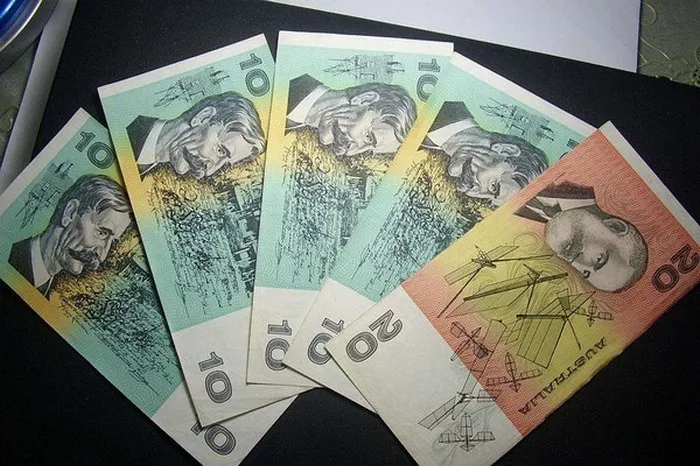The Australian dollar (AUD) has been making headlines with its remarkable strength in recent years, outperforming many other major currencies in the global forex market. This trend has piqued the interest of economists, investors, and financial analysts, as they seek to understand the underlying factors contributing to the Australian dollar’s resilience. In this article, we will explore the various reasons behind the Australian dollar’s recent strength and examine the potential implications for Australia’s economy.
Robust Economic Fundamentals
One of the primary drivers behind the strength of the Australian dollar is the country’s strong economic fundamentals. Australia has a well-developed and diverse economy that boasts a stable political environment, a strong regulatory framework, and a transparent legal system. These factors have fostered investor confidence in the country’s financial markets, attracting foreign capital and contributing to the currency’s strength.
Australia’s sound fiscal and monetary policies have also played a significant role in its economic stability. The Reserve Bank of Australia (RBA) has implemented prudent monetary policies, keeping inflation in check and maintaining low interest rates, which can make the currency more attractive to international investors. Additionally, the country’s commitment to fiscal responsibility has resulted in a strong credit rating, further boosting confidence in the Australian dollar.
Commodity Exports
Australia is a major exporter of various commodities, including iron ore, coal, natural gas, and gold. The global demand for these commodities has remained robust, particularly from emerging economies like China, which is Australia’s largest trading partner. As a result, the Australian dollar’s value is closely tied to the performance of these commodities in the global market.
The strong demand for Australian commodities has led to a positive trade balance, as the country consistently exports more than it imports. This surplus strengthens the Australian dollar, as foreign buyers acquire the currency to pay for these exports. Consequently, a significant portion of the currency’s strength can be attributed to the country’s commodity exports.
High Interest Rates
Australia has historically offered relatively high-interest rates compared to other developed economies. The differential in interest rates between Australia and major currencies like the US dollar, euro, and Japanese yen makes Australian assets, including government bonds and savings accounts, attractive to global investors seeking higher returns. This “carry trade” dynamic encourages investors to buy Australian dollars, contributing to the currency’s strength.
Furthermore, the Reserve Bank of Australia (RBA) has been cautious about lowering interest rates to near-zero levels, which have become commonplace in many other developed economies. The RBA’s commitment to maintaining a positive interest rate environment has helped underpin the Australian dollar’s strength.
Strong Real Estate Market
Australia’s robust real estate market, particularly in major cities like Sydney and Melbourne, has attracted significant foreign investment. The stability and growth of this sector have resulted in foreign investors purchasing Australian dollars to participate in the property market, further bolstering the currency.
Foreign investors seeking to acquire Australian real estate assets need to exchange their own currencies for Australian dollars, which increases the demand for the currency. The real estate market’s performance, along with the lifestyle and political stability that Australia offers, has made the Australian dollar an attractive option for real estate investments.
Political Stability
Australia’s long-standing political stability and adherence to the rule of law make it an appealing destination for foreign investors. The country’s political system is characterized by democratic elections, a commitment to human rights, and a strong legal framework, which fosters confidence among international investors.
This political stability not only attracts foreign investment but also enhances the Australian dollar’s reputation as a reliable and safe currency for trade and investment. Countries with political unrest or instability often experience weakened currencies, but Australia’s consistent political environment contributes to the strength of the Australian dollar.
Implications of a Strong Australian Dollar
The strength of the Australian dollar has several implications, both positive and negative, for the country’s economy.
Positive Implications:
Reduced import costs: A stronger Australian dollar can lead to lower import costs for businesses and consumers, potentially driving down the prices of imported goods and services, which can benefit consumers and businesses that rely on foreign inputs.
Attracting foreign investment: A strong currency can attract foreign investment, as international investors seek opportunities in Australia’s stable and growing economy. This can lead to increased foreign direct investment, job creation, and economic growth.
Lower inflation: A strong Australian dollar can help keep inflation in check by reducing the cost of imported goods and services. This can be particularly important for the Reserve Bank of Australia, as it can influence monetary policy decisions.
Negative Implications:
Exports become more expensive: While a strong currency can benefit consumers through cheaper imports, it can hurt exporters by making Australian goods and services more expensive for foreign buyers. This can negatively impact export-dependent industries such as agriculture and manufacturing.
Economic imbalances: A strong Australian dollar can lead to imbalances in the economy, as the country’s exports may suffer while imports become more affordable. This can result in trade deficits, impacting the country’s overall economic health.
Tourism industry challenges: A strong Australian dollar can deter international tourists, as Australia becomes a more expensive destination. The tourism industry may experience reduced visitor numbers, affecting the businesses that rely on tourist spending.
Conclusion
The strength of the Australian dollar is influenced by a combination of factors, including robust economic fundamentals, commodity exports, high-interest rates, a strong real estate market, and political stability. While a strong currency has both positive and negative implications for the Australian economy, it largely reflects the country’s economic resilience and attractiveness to international investors.
As Australia continues to navigate the challenges and opportunities associated with a strong currency, it is essential for policymakers and businesses to adapt and make strategic decisions that take into account the evolving dynamics of the Australian dollar in the global economy.


